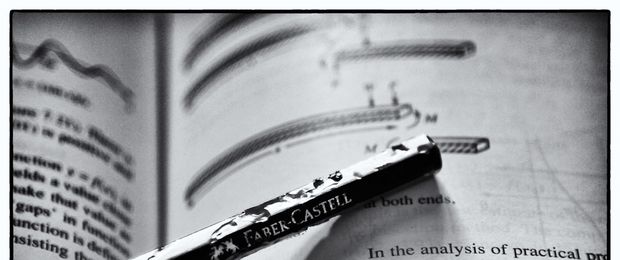A week off for all
Ah, week 6. No alarms, no lectures, no deadlines. Days can be spent how you want to spend them, work can be done when you want to do it, and the bus journey to campus is altogether optional. Yes, it’s reading week, and the world is your oyster.
Unless you’re a scientist. For us, lectures roll on, labs continue, and assignments are still demanded week after week. “But you don’t have any reading!”, we hear you cry. “You don’t have essays, what else would you do?”
I may sound bitter, but I was under the impression that arts students had fewer hours in their timetable so that they could read and work on essays. For some, reading week is a time to work. Many do use it for its intended purpose, working long hours to research, plan and write their essays.
We constantly have assignments and tests, and many of us have lab reports too.
For others, however, reading week is more like a half term, consisting of going home, watching daytime TV, and completing one or two assignments just before they’re due in on Monday.
Scientists can have upwards of 30 contact hours a week. We constantly have assignments and tests, and many of us have lab reports too.
I propose a ‘lab report writing week’ – dedicated to carrying out background research on our topic and then writing it up. Isn’t that what it’s supposed to be for?
Don’t get me wrong, there are upsides to being a scientist. We get more for our money in terms of contact hours, and the fact that we get a fortnight more of teaching each year compared to arts students reinforces that.
I can’t be the only one who is a bit jealous of those with 15 hour weeks – enough to justify the fees, but not enough to take away from extracurricular opportunities.
My timetable is a relatively small 25 hours a week, but I do the bare minimum amount of modules, much to my tutor’s chagrin. I have also discovered that students outside the sciences don’t understand the ‘overCATting’ culture. If you check out the Seymour formula, you’ll understand why some scientists feel the pressure to take more modules than they have to.
There are many things I would like to get involved in that my timetable doesn’t allow. Perhaps if we had an extra week in our budget, it would be easier.
I love working at the Boar, but many of my peers feel as though they can’t commit to an exec position whilst trying to balance a busy timetable with work.
Having a reading week for both the arts and the sciences would improve rather than take away from the university experience.

Comments